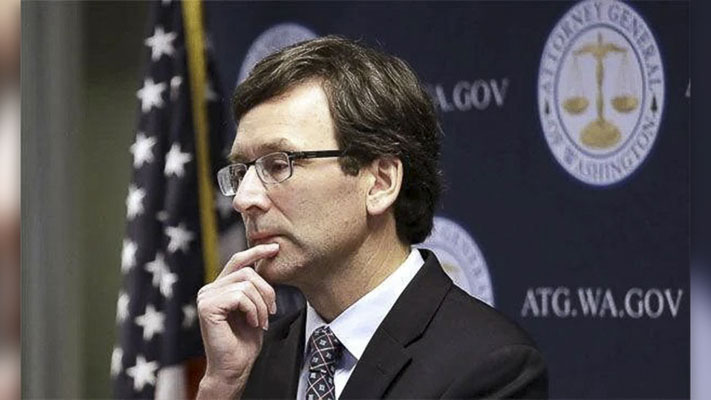
Currently, nine other states have task forces dedicated to combating organized retail crime
Brett Davis
The Center Square Washington
Washington State Attorney General Bob Ferguson is asking the state Legislature for $1.5 million annually to fund the creation of a 10-member organized retail crime unit in his office.
The request follows Ferguson’s convening of an organized retail crime task force earlier this year to improve cooperation between law enforcement agencies in dealing with the matter in Washington. Next year’s 105-day legislative session begins on Jan. 9.
Organized retail crime is the large-scale theft of retail merchandise with the intent to resell the items for financial gain. It typically involves a criminal enterprise employing people to steal large quantities of items from a number of stores and a fencing operation that converts the stolen goods into cash.
An analysis by the Retail Industry Leaders Association estimates organized crime groups stole $2.7 billion from Washington retailers in 2021, the second highest in the nation per capita.
“Washington law enforcement agencies have limited resources to tackle these sophisticated crimes,” Ferguson said in a news release the day before Thanksgiving. “A modest investment in a centralized statewide organized retail crimes unit will hold criminals accountable and deter crimes which cause significant economic harm to our state.”
The day after Thanksgiving, known as Black Friday, marks the traditional beginning of the Christmas shopping season, as well as the start of heightened efforts at preventing organized retail crime.
“As the retail industry continues to recover from the pandemic, there has never been a more critical time in Washington state to address the growing impacts of organized retail crime on public safety and the safety of our customers and retail employees,” Renée Sunde, president and CEO of the Washington Retail Association, said in a statement. “Funding the unit is an important part of a multi-pronged approach to coordinate the efforts of state and local law enforcement, prosecutors, retailers and policymakers at multiple agencies and levels of government.”
In addition to coordinating retail crime investigations across multiple jurisdictions and efficiently deploying resources, the new unit will also be able to prosecute cases referred to the Attorney General’s Office by county prosecutors. Absent such a referral, the office has no jurisdiction over criminal matters.
Organized retail crime, a multibillion dollar per year industry, is a primary driver of retail shrink – the loss of inventory that can be attributed to causes other than sales – across the nation.
According to the National Retail Federation’s latest National Retail Security Survey, shrinkage reached $94.5 billion in 2021, up from $90.8 billion in 2020. The report found that retailers saw an average 26.5% increase in organized retail crime incidents over the previous year, with retailers also noting an uptick in violence and aggression associated with organized retail crime.
Currently, nine other states have task forces dedicated to combating organized retail crime. Arizona and Michigan are among the most recent states to establish similar organized retail crime units in their state attorneys general’s offices.
This story was first published by The Center Square Washington.
Also read:
- Opinion: OIC tells consumers not to pay for ‘insurance’ you won’t likely benefit from: Does that include WA Cares?Elizabeth New (Hovde) of the Washington Policy Center believes you should consider yourself warned by the Office of the Insurance Commissioner about WA Cares and its maybe-only benefit.
- Opinion: Same road, different speed limit?Target Zero Manager Doug Dahl addresses a question about speed limit signs going into and leaving town.
- Progress being made at GRO Parade of Homes siteThe 2024 GRO Parade of Homes, presented by the Building Industry Association of Clark County, is a little more than a month away, and builders are busy completing the luxury homes before the big event, scheduled for Sept. 6 through 22 in Felida.
- Has trust in the media tanked over coverage of President Biden’s decline?After President Joe Biden’s calamitous debate performance against former President Donald Trump, and days after Biden’s decision Sunday not to seek reelection, there are still many questions about how the news media covered Biden’s mental and physical decline.
- Opinion: Hiding the growing cost of the Interstate Bridge replacementJoe Cortright of the City Observatory addresses the rising cost of the Interstate 5 Bridge replacement project.
- Letter: ‘This election I am NOT voting for Greg Cheney’Clark County resident Wynn Grcich shares her thoughts on Rep. Greg Cheney and the issue of fluoridation in area drinking water.
- Major gas line leak closes major arterial in Clark CountyFirefighters from Clark County Fire District 6 responded Thursday (July 25) afternoon to the scene of a major natural gas leak on NE 99th Street, directly in front of Columbia River High School.











